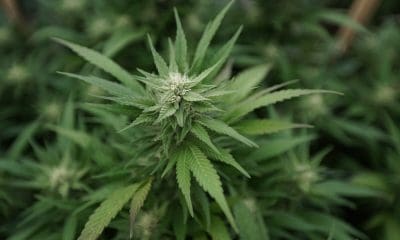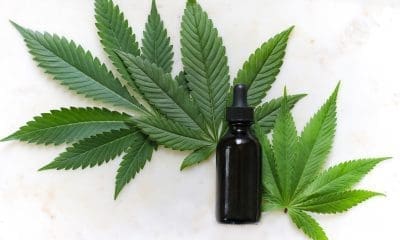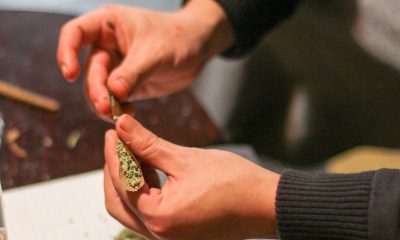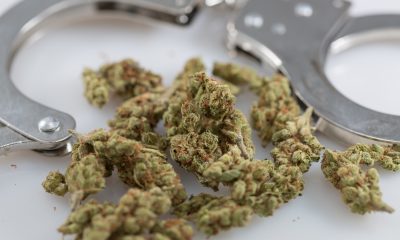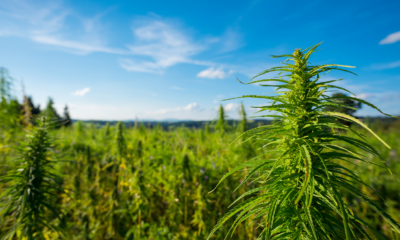Politics
Virginia Senator Says Legalizing Marijuana Sales Would Address Police Chief’s Concerns About Violent Illegal Market
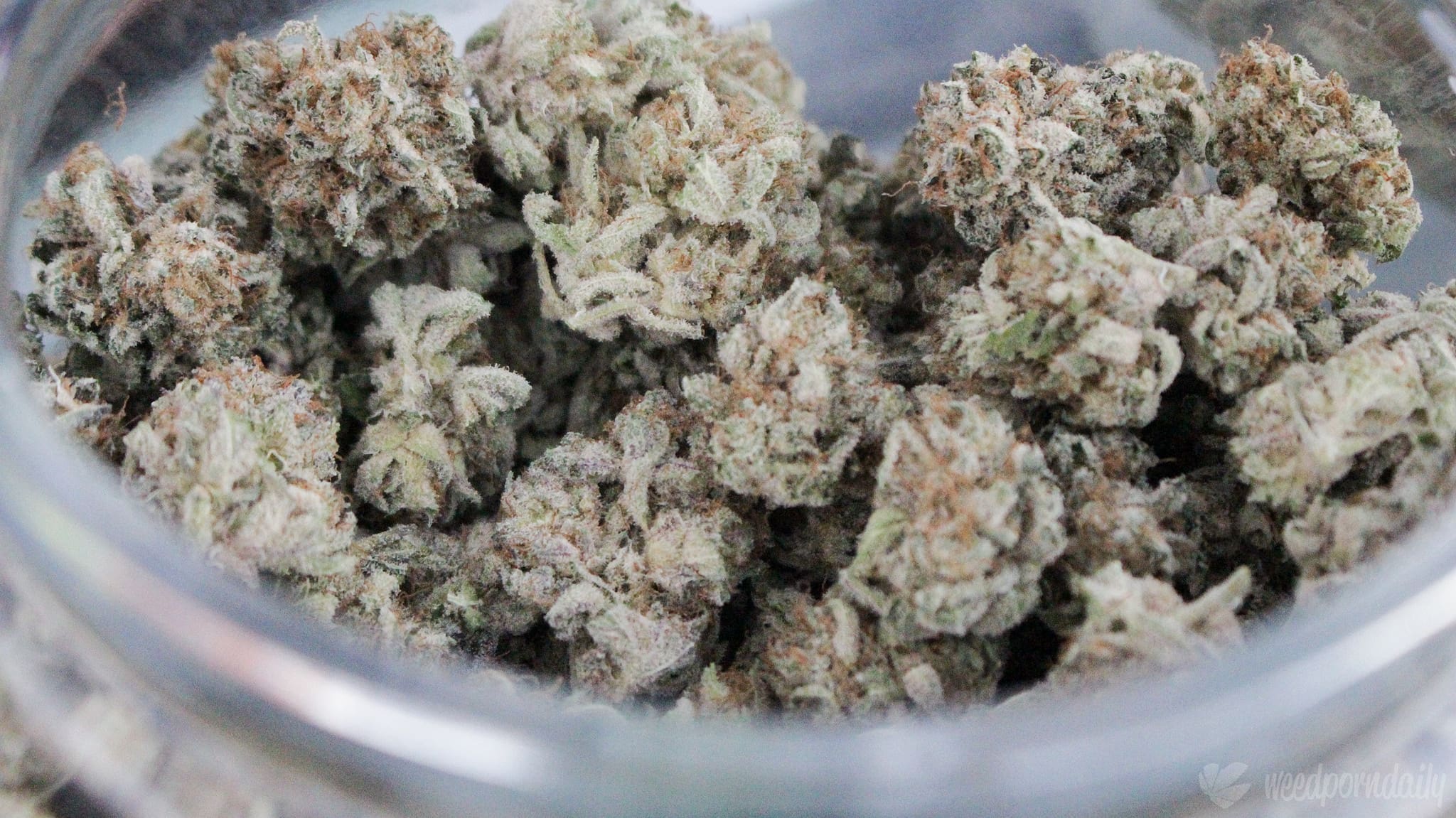
In Virginia Beach, Virginia, local law enforcement leaders say the vast majority of drug-related crime is tied to marijuana. Advocates for legalization counter that the situation could be remedied by regulating cannabis, which is currently legal to possess in small amounts but remains a crime to sell.
“Where you may think it will be heroin, you may think it will be cocaine, methamphetamine, nope. It’s marijuana,” Virginia Beach Police Chief Paul Neudigate told local ABC affiliate 13 News Now in a recent interview. “We have young men losing their lives in this community today over 200 dollars’ worth of marijuana. Marijuana drives a lot of my shooting violence, it drives a lot of my robbery violence, and it drives a lot of my homicide violence.”
The station reported that Neudigate said that “90 percent of the city’s illegal drug-related crime is fueled by marijuana,” though the actual data on Virginia Beach’s crime rates were not included.
Sen. Aaron Rouse (D), who sponsored the Senate version of a bill this year that would have legalized and regulated retail sales of marijuana in the commonwealth, said the reform would have helped reduced violence around cannabis supply.
“Our young people are killing each other over something where we could attempt to mitigate those interactions by regulating marijuana,” he told the station.
“Where you have a structured market, where you can regulate, you can enforce and you can tax cannabis sales,” Rouse added, “what that does is drive out the black market.”
In a statement to 13 News Now, a spokesperson for Gov. Glenn Youngkin (R), who vetoed Rouse’s bill, reiterated the governor’s opposition to regulating retail sales.
“Instead of following the failed paths of other states and endangering Virginians’ health and safety, Governor Youngkin will continue to address the inconsistencies in enforcement and regulation in Virginia’s current laws which don’t justify expanding access to cannabis,” the office said.
“Efforts by other states to regulate the black-market for cannabis have largely failed because legalizing weed does not eliminate the illegal black-market sale of cannabis, ensure product safety, and have fallen short of revenue expectations and forecasts,” the statement continued.
Jason Blanchette, president of the Virginia Cannabis Association, refuted those claims.
“You do see a reduction in crime. You do see a reduction in gun violence,” he told the station, referring to states that regulate marijuana sales. “Because most people, for the extra $5, $7, $10 per purchase, are going to much rather purchase from a reliable source.”
It’s simple – and we know the solution. A legal retail marijuana market would reduce violent crime in our city and across the Commonwealth. It’s past time to get it done. pic.twitter.com/4UCdwiz5DX
— Aaron Rouse (@AaronRouseVA) June 4, 2024
Though the legislature passed the retail sales bill this session, Youngkin rejected it in March, claiming in a veto message that states that have legalized “have seen adverse effects on children’s and adolescent’s health and safety, increased gang activity and violent crime, significant deterioration in mental health, decreased road safety, and significant costs associated with retail marijuana that far exceed tax revenue.”
The governor wrote in his four-page veto message: “Attempting to rectify the error of decriminalizing marijuana by establishing a safe and regulated marketplace is an unachievable goal. The more prudent approach would be to revisit the issue of discrepancies in enforcement, not compounding the risks and endangering Virginians’ health and safety with greater market availability.”
Democratic senators said the veto means it’s likely legal stores won’t open in Virginia until 2027 or later.
Lawmakers, including Rouse, also warned in the wake of the veto that denying legal retail sales would only fuel the illegal market. He and the bill’s lead House sponsor, Del. Paul Krizek (D), at the time called the governor’s veto “dangerous and irresponsible” as well as “reckless and negligent.”
Krizek said in the statement that the governor’s “failure to act allows an already thriving illegal cannabis market to persist, fueling criminal activity and endangering our communities.”
The failure to establish a legal retail marijuana market is a threat to public safety in our commonwealth, especially here in Virginia Beach. In Virginia Beach, 90% of the city's illegal drug-related crime is fueled by marijuana, driving much of the city's shooting violence.… pic.twitter.com/eafHFictgL
— Aaron Rouse (@AaronRouseVA) May 30, 2024
Use, possession and limited cultivation of cannabis by adults is already legal in Virginia, the result of a Democrat-led proposal approved by lawmakers in 2021. But Republicans, after winning control of the House and governor’s office later that year, subsequently blocked the required reenactment of a regulatory framework for retail sales. Since then, illicit stores have sprung up to meet consumer demand.
Hope was high among supporters last year that Democrats retaking control of both chambers of the state legislature would breathe new life into the retail sales legalization effort. But despite the party’s victories in November, even the bill’s sponsors had acknowledged the possibility of a Youngkin veto before the measure was sent to his desk.
Nonetheless, Krizek told Marijuana Moment after the bill died that its passage by the legislature still marked progress for Virginia. And he signaled he’d again support the reform next session.
“We really did craft a wonderful piece of bicameral legislation that even garnered bipartisan support, albeit not as many members as I would have expected, but that was probably due to Governor’s antipathy toward it,” he said. “So, we have a bill we can introduce next session that will only need some minor adjustments (I did see some small improvements we can make) and gives us a head start.”
Some had higher hopes for Youngkin when he was first elected in 2021.
“With Governor-elect Youngkin previously stating that he would uphold the will of the people, and focus on creating a ‘rip-roaring economy,’ we are fully confident that he and the people of Virginia will continue to make progress,” Jim Cacioppo, the CEO, chairman and founder of multistate cannabis company Jushi Holdings, said in a statement at the time.
In an email to Marijuana Moment after the veto, however, Jushi’s chief strategy director, Trent Woloveck, described Youngkin as “a sanctimonious culture warrior.”
The governor this year also greeted less controversial marijuana reforms coldly. Earlier in March, for example, he vetoed a separate proposal that would have prevented the state from using marijuana alone as evidence of child abuse or neglect despite the measure winning unanimous or near-unanimous approval in votes on the Senate floor.
Following that action, Del. Rae Cousins (D), the bill’s sponsor, accused the governor of “turning his back on the needs of our children and neglecting their well-being by encouraging the courts to move forward with unnecessary family separations.”
“We have seen how this is playing out in our courts; with Black and Brown families receiving harsher mandates from our judges for legal and responsible substance use,” the lawmaker said. “Family separation has devastating effects both on our communities and on the well-being of children, and by vetoing this legislation, Governor Youngkin is telling our courts that they can continue to unnecessarily tear children away from their parents.”
At one point earlier this session, it appeared the retail cannabis bill could become part of a grand deal between Youngkin and legislative Democrats. In December, Senate President Pro Tempore Louise Lucas (D) alluded to a compromise involving a sports stadium project the governor supported. But that deal never materialized, and Democrats left the governor’s proposed arena plan out of budget legislation, at which point the little remaining hope for the stadium deal fell through.
One day before his cannabis veto, Youngkin said in a statement that the stadium project had “gone up in smoke” after the city of Alexandria halted negotiations around the proposal—a possible nod to the would-be deal’s implications for his support of the marijuana measure.
Supporters of the sales bill, such as Rouse and Krizek, repeatedly emphasized the bill would not create a cannabis market in Virginia but instead regulate the state’s existing illicit market, which some estimates have valued at nearly $3 billion.
The legislation sent to Youngkin would have begun licensing marijuana businesses later this year, with sales slated to kick off on May 1, 2025. Sales to adults 21 and older of up to 2.5 ounces of marijuana flower would be allowed, with purchases taxed at 11.625 percent. Local governments could have banned marijuana establishments, but only with the support of local voters.
Here’s what Virginia’s lawmaker-passed retail sales legislation would have done:
- Retail sales could begin as of May 1, 2025.
- Adults would be able to purchase up to 2.5 ounces of marijuana in a single transaction, or up to an equivalent amount of other cannabis products as determined by regulators.
- A state tax of 11.625 percent would apply to the retail sale of any cannabis product. Of that, 8 percent would go to the state, local governments would get 2.5 percent and 1.125 percent would fund schools.
- The Virginia Cannabis Control Authority would oversee licensing and regulation of the new industry. Its board of directors would have the authority to control possession, sale, transportation, distribution, delivery and testing of marijuana.
- Local governments could ban marijuana establishments, but only if voters first approve an opt-out referendum.
- Locations of retail outlets could not be within 1,000 feet of another marijuana retailer.
- Cultivators would be regulated by space devoted to marijuana cultivation, known as canopy size. Both indoor and outdoor marijuana cultivation would be allowed, though only growers in lower tiers—with lower limits on canopy size—could grow plants outside. Larger growers would need to cultivate plants indoors. Secure greenhouses would qualify as indoor cultivation.
- Only direct, face-to-face transactions would be permitted. The legislation would prohibit the use of other avenues, such as vending machines, drive-through windows, internet-based sales platforms and delivery services.
- Existing medical marijuana providers that enter the adult-use market could apply to open up to five additional retail establishments, which would need to be colocated at their existing licensed facilities.
- Serving sizes would be capped at 10 milligrams THC, with no more than 100 mg THC per package.
- No person could be granted or hold an interest in more than five total licenses, not including transporter licenses.
- People with convictions for felonies or crimes involving moral turpitude within the past seven years would be ineligible to apply for licensing, as would employees of police or sheriff’s departments if they’re responsible for enforcement of the penal, traffic or motor vehicle laws of the commonwealth.
- An equity-focused microbusiness program would grant licenses to entities at least two-thirds owned and directly controlled by eligible applicants, which include people with past cannabis misdemeanors, family members of people with past convictions, military veterans, individuals who’ve lived at least three of the past five years in a “historically economically disadvantaged community,” people who’ve attended schools in those areas and individuals who received a federal Pell grant or attended a college or university where at least 30 percent of students are eligible for Pell grants.
- “Historically economically disadvantaged community” is an area that has recorded marijuana possession offenses at or above 150 percent of the statewide average between 2009 and 2019.
- Tax revenue from the program would first cover the costs of administering and enforcing the state’s cannabis system. After that, 60 percent of remaining funds would go toward supporting the state’s Cannabis Equity Reinvestment Fund, 25 percent would fund substance use disorder treatment and prevention, 10 percent would go to pre-K programs for at-risk children and 5 percent would fund a public health and awareness campaign.
- Adults could also share up to 2.5 ounces with other adults without financial remuneration, though gray-market “gifting” of marijuana as part of another transaction would be punishable as a Class 2 misdemeanor and a Class 1 misdemeanor on second and subsequent offenses.
- A number of other new criminal penalties would be created. Knowingly selling or giving marijuana or marijuana paraphernalia to someone under 21, for example, would be a Class 1 misdemeanor, punishable by up to a year in jail and a maximum $2,500 fine, as would knowingly selling cannabis to someone reasonably believed to be intoxicated. It would also be a Class 1 misdemeanor to advertise the sale of marijuana paraphernalia to people under 21.
- Knowingly obtaining marijuana on behalf of someone under 21 would be a Class 1 misdemeanor.
- People under 21 who possess or use marijuana, or attempt to obtain it, would be subject to a civil penalty of no more than $25 and ordered to enter a substance use disorder treatment and/or education program.
- Illegal cultivation or manufacture of marijuana, not including legal homegrow, would be a Class 6 felony, punishable by up to five years imprisonment and a $2,500 fine.
- People could process homegrown marijuana into products such as edibles, but butane extraction or the use of other volatile solvents would be punishable as a Class 1 misdemeanor.
After Youngkin’s veto of the bill, a national Democratic Party group bashed what it called the governor’s “harmful opposition to marijuana reform” ahead of the 4/20 cannabis holiday, drawing attention to the Republican governor’s vetoes of bills to legalize retail sales and reduce sentences around past marijuana crimes.
In a statement tied to the 4/20 cannabis holiday and shared exclusively with Marijuana Moment, the Democratic Legislative Campaign Committee (DLCC), which focuses on electing Democrats to state legislatures, said Youngkin “continues to hold Virginia back and block the progress made by Democrats in control of the legislature.”
In April, meanwhile, Virginia Health Commissioner Karen Shelton said her agency had received a sufficient number of reports of minors getting sick from cannabis products that the commonwealth would create a “special surveillance system” to track the issue.
Marijuana Rolling Paper Company Will Pay $4.20 To Volunteers To ‘Smoke Joints For Science’
Photo courtesy of WeedPornDaily.




